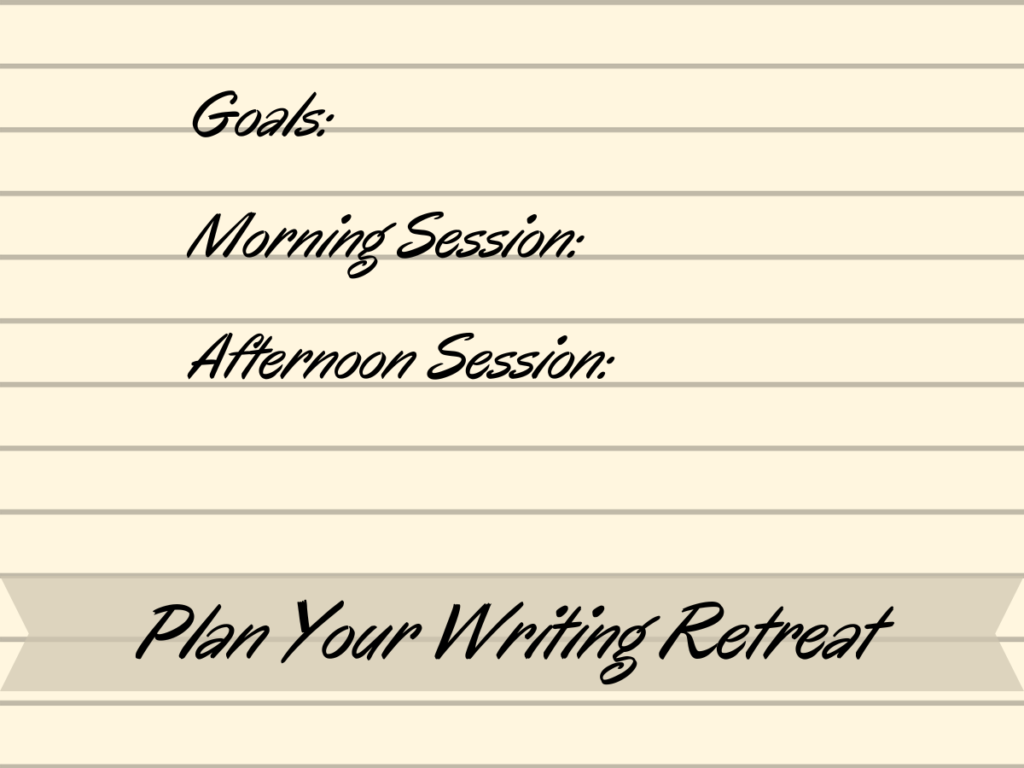Planning your own writing retreat can help you immensely when it comes to boosting productivity. A dedicate mental and physical space for you to write on whatever project you are working is great to get in “the zone”. Writing retreats are often coral activities coordinated by external entities, which include a variety of people participating. This means you have to wait for a writing retreat to be available in your area or, at least, online.
When you plan your own writing retreat you are no longer dependent on others and regain complete control over your focus and time. This post guides you through the planning of a writing retreat that will help you achieve your goals.

What is a Writing Retreat?
A writing retreat is an activity where you focus on – unsurprisingly – writing. If you have to complete any task that involves writing, such as projects, essays and thesis, you will spend one or two days only focusing on writing those. The projects you are working on will probably require different activities, which go beyond writing. Those will NOT be carried out during the writing retreat.
This means that you should arrive at a writing retreat with some work done, if you have to write about findings of a research, or data analysis, or whatever your project entails. If you are writing a book, instead, or an essay that doesn’t require research (maybe an opinin piece on something), you can start your writing retreat without preparation, and force yourself to write until you find the type of inspiration that you like.
Why Plan Your Own Writing Retreat?
Whatever you are trying to write, be it a project, an essay, a book, a thesis, or dissertation, you may encounter blocks. It can be especially difficult to overcome them when working alone, without a supporting environment that can motivate you. Sometimes, it is very hard to start writing, but even while completing your work, you may find yourself losing motivation and needing a little push to make you complete and deliver.
A writing retreat is a highly effective way to overcome blocks. Of course, it would be ideal to join a physical retreat with other people pursuing your same goal, since environment can play a significant role in productivity. An online writing retreat would also be a great idea, with a remote group supporting you and holding you accountable. However, the possibilities for joining both types of retreat are somewhat limited. You may want to choose to build tools that allow you the freedom of following your path without waiting for others.
You can provide a writing retreat to yourself, by yourself. Even though it may seem to require quite a lot of effort on your part, it only needs organization.
This post guides you through the planning of your perfect writing retreat.
1. Schedule Your Retreat
You should schedule your retreat in advance. You do not need to notify yourself a month prior, but get a good look at your schedule and choose a day (or two days) that are appropriate.
If you know that your week is going to be extremely busy and tiresome, scheduling a writing retreat for that weekend may not be the best of ideas. While we cannot wait for the perfect moment, it is a good idea to choose a day in a week that looks like a normal week effort-wise, and not the busiest week ever.
You can have a retreat for as many days as you like. Personally, I would advise to start with one or two days for the first retreat. That will give you the chance to get a feeling for the process without being overwhelmed by the perspective. You can always prolong the retreat if you see you are doing well and if you have the time to do so.
2. Plan What You Want to Write During the Retreat
Start by dividing your day in sessions. You may go for just two sessions: morning and afternoon. You could also divide the day in more sessions, suitable to you.
Plan what you want to write in general terms: you do not need to be extremely specific about it, but you should address the core areas you want to work on.
Examples may be: “work on the methodology part of the dissertation”, “work on chapter two and three of the book”, and so on. When planning what to write, it would be ideal to distribute the goals into the sessions of the day. For example: “Sunday morning – Write chapter 2; Sunday Afternoon – Revise chapter 1 and 2”.
You can go on being as specific as you like. However, the more specific you are with your goals the more pressure you put on yourself. Hence, it may be a clever idea to start with a loose schedule to only get more specific once you got accustomed to the process.
3. Have a Written Schedule
When you plan what you want to write, write it down to have the schedule holding you accountable. While it may seem silly, there is a difference between having a vague idea, or even a firm idea, about something and actually laying it down on a piece of paper (or computing worksheet).
The schedule will hold you accountable to your commitments, and you won’t be able to push your goals away as easily as you could if you only had them in your mind.
4. Get an Accountability Person
You can be your own accountability person. However, if you have the chance to involve somebody else, it may be a good idea to do it. It is not necessary, though.
The person does not need to participate to the writing retreat, they just need to hold you accountable. They also don’t need to be involved in your work at all.
The only thing they need to have is your schedule. They would have to check on you either at the end of the day or, if you want them to be more involved (and they are up for it), you could have them check on you at the end of every session.
Let’s say you planned to write chapter two of your book on Sunday morning and chapter three on Sunday afternoon. You may want your accountability person to call you up at lunch time to have them ask you if you completed chapter two. You may even ask them to question you about the reasons that led you not to complete the task, in case you do not finish what you planned.
I would advise to be cautious in the choice of the accountability person. Do not pick a judgmental person or somebody who enjoys when other people don’t reach their goals. The accountability person should not add anxiety to your process.
Having the accountability person question you about the reasons that led you to delay the completion of your task may make you better understand what didn’t work for you. That could help you find solutions.
5. Do NOT Skip Resting Time
When doing a writing retreat, multiple variables may lead you to overdo it.
Resting time is essential for good productivity and, most importantly, for good work production. You are doing the retreat to write, but you want to write quality content. Hence, when planning your schedule, you should also include resting time.
We address how to build your perfect five-minute break in this post.
You may want to take a longer break between two sessions, and you may want to include little breaks throughout the sessions. If you use techniques such as the pomodoro one, you can also directly account for those breaks in your planning. Any way you choose to do it, it is important to give your brain a break. It will lead you to the production of higher quality work.






